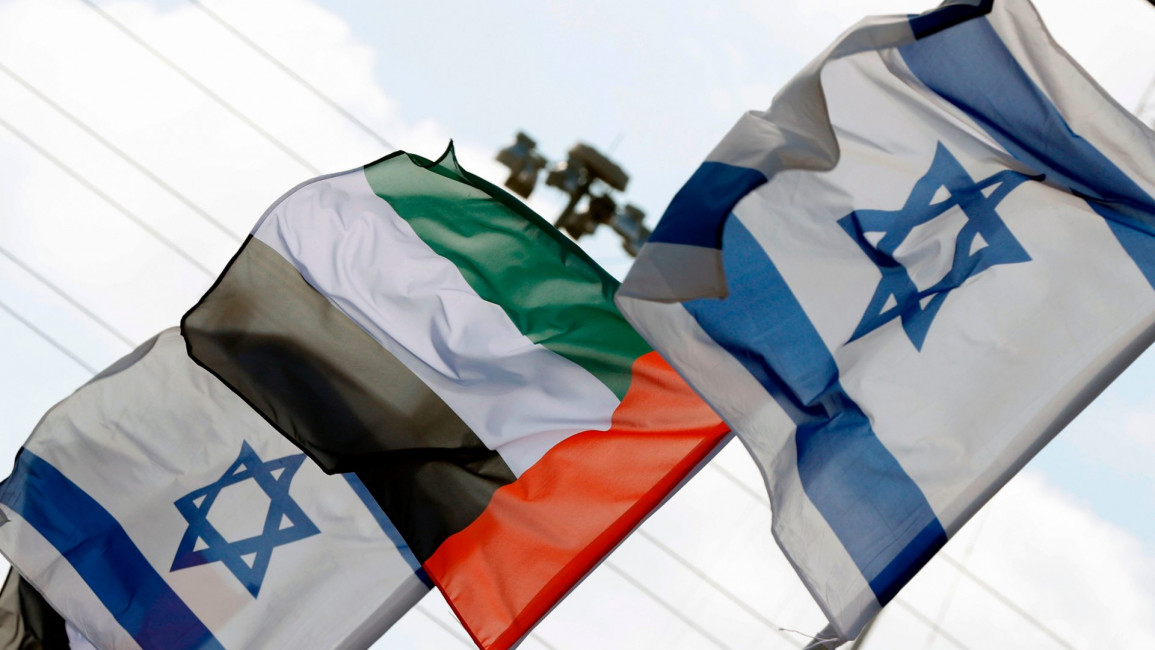Follow us on Facebook, Twitter and Instagram to stay connected
Palestinians need to 'stop curses' and 'help themselves', says leading UAE diplomat
Omar Saif Ghobash, the UAE's assistant minister for cultural and public diplomacy, spoke to The Times of Israel in Washington on the eve of the normalisation deal between Israel and the UAE being inked in the White House.
He Palestinian slammed recent criticisms of normalisation deals agreed between Israel and Gulf states Bahrain and the UAE, which included President Mahmoud Abbas who called the agreement "a stab in the back".
"They need to want to help themselves as well, and perhaps instead of using the traditional criticisms and curses, they actually look at what we are trying to do," Ghobash told the Israeli daily.
Palestinian leaders have said that the UAE-Israel deal is a "betrayal", and gives away the strongest card Arab countries had in pressuring Israel to agreeing a Palestinian state.
He argued that the "connectivity" the deal brings "is going to help rather than hinder" Palestinian efforts but fell short of promoting the idea of a Palestinian state.
"Using what we managed to achieve, we encourage the Palestinians to reach out to the Israelis and the US authorities and to rethink what might be possible," he said.
US President Donald Trump's so-called "Deal of the Century" offered the Palestinians a state formed out of an archipelago of territories in the West Bank and Gaza, in return for substantial conessions.
Trump's Palestinian state idea was deemed unworkable by diplomats and analysts, while Palestinians dubbed the offer highly insulting.
International consensus remains that a Palestinian state should be established along pre-1967 boundaries.
|
|
The 2002 Arab Peace Initiative offers Israel recognition if a Palestinian state is established and a full Israeli withdrawal from the occupied West Bank is implemented.
Ghobash claimed that the UAE would speak "to our Israeli friends and partners about some of the issues that concern [us]" but appeared unwilling to advocate for a Palestinian state.
"We are not going to negotiate on their behalf, but we are saying that there is space [to move forward], and we believe that we have created that space [with this agreement]," he said.
Reception to the deal in the UAE has been muted, although all criticisms of domestic or foreign policy is usually swiftly dealt with by authorities.
Ghobash claimed that Emiratis were huge fans of Israeli culture.
"There's already been a lot of interest and curiosity about kosher food, about the Hebrew language, about the lifestyle and about what Israelis are really like," he told the daily.
"You know, a lot of Emiratis are watching [Israeli drama] 'Fauda'… so an image is building up. A lot of young Emiratis have already told me they want to go to Tel Aviv and other places in Israel, and they're really interested in interacting with their own age group."
He also claimed that Emiratis widely backed the normalisation agreement, announced 14 August, despite widespread anger in the Arab world.
"When leadership decides that this is the direction that we are going to go in, [the people] see that as a green light, as opposed to a taboo that can’t be broken," he said.
The Israeli journalist also asked the diplomat whether Abu Dhabi might consider state-funded trips for Emiratis to visit their new ally, using the Israeli "Birthright" scheme as an example, which offers Jewish men and women from across the world a free ten-day "heritage" holiday.
"That would be a fantastic idea. Obviously, it wouldn’t be Birthright, but maybe 'visit-and-discover-right.'"



